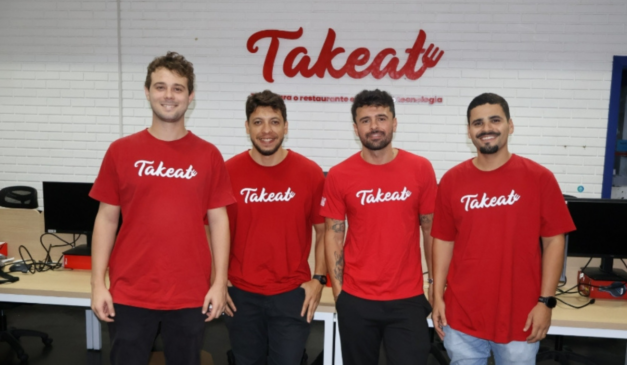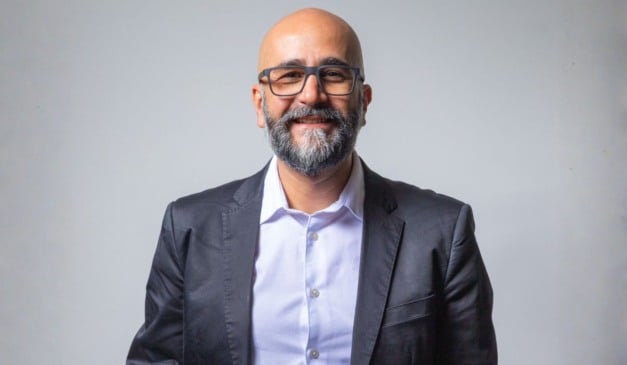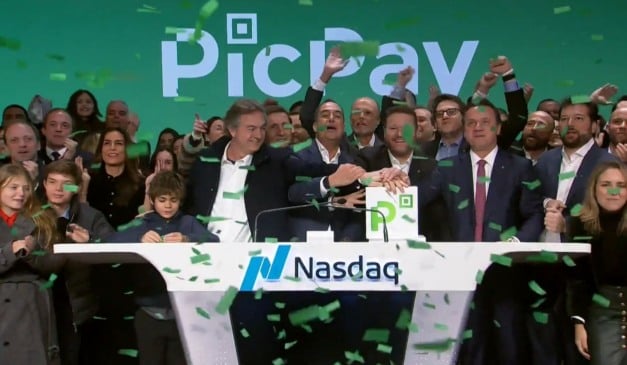
Esta história também está disponível em português
A group of Brazilian organizations is pressing ahead with open delivery, a model aimed at bringing more efficiency and productivity to the delivery operation of bars and restaurants countrywide. Similarly to open banking, the approach is all about standardizing and sharing information between restaurants, sales channels (such as apps and marketplaces) as well as management systems. The end goal is simplified communication, with the added bonuses of cost efficiency and increased competition.
Spearheaded by the Brazilian Association of Bars and Restaurants (Abrasel), the project is supported by Matera, a technology company focused on financial products and services, and Brazilian Association of Commerce Automation (Afrac). “Open delivery is not about software, a platform, or a website. It’s simply a document that describes the standard format to operate in the sector”, says Carlos Netto, executive director at Matera.
To get the project off the ground, the open delivery received BRL 3.3 million (USD 622,641), contributed equally by 16 major companies, including retailer Via, payment processor Alelo, drinks conglomerate Ambev, as well as Latin e-commerce behemoth Mercado Pago.
The main delivery apps active in Brazil were also involved, including iFood, Uber Eats (which is set to fold its operations in Brazil this coming March) and Rappi. The startups took part in the meetings focused on the development of the model and also appointed technicians and specialized professionals for the initiative.
Over the last year, the project participants created the technical documentation for sector players wishing to voluntarily join the open programming standard. With the reduction of operational inefficiencies, Abrasel estimates that the open delivery standard has the potential of adding 20% to 30% to the historical profitability of the food delivery sector.
Who wins with open delivery
There are various technical obstacles for food businesses wanting to operate through delivery platforms. “There is a lot of difficulty around integrating systems”, says Miguel Neto, executive director at logistics player Quero Delivery.
A restaurant wanting to sell products via iFood, for example, has to submit data such as the name of the establishment, contact data, company registration number, items and menu prices. If this same business also wants to sell via Rappi, Quero Delivery or any other app, it has to go through the same process for each of the platforms all over again.
“Each sales channel uses a different pattern [for data entry], making it very difficult for the restaurant to connect to multiple channels at the same time. The platforms adhering to open delivery bring relevant operating advantages: the establishment only publishes the menu [including items, prices and promotions] once and any changes will be automatically made across all [sales] partners”, says Abrasel on the project’s official page.
According to the association, in addition to making life easier for restaurants, the project also benefits order platforms originating the orders. With the integration promoted by the open delivery model, the expectation is that many more restaurants will seek apps and marketplaces to sell their products.
“By standardizing and organizing the way restaurants publish, manage and personalize their menus, open delivery enables gains in scale and acceleration of its platform, which can connect in a much easier and more agile way to a greater number establishments”, the trade body says.
On the other side of the partnership are the providers of management software (ERP), point of sale (POS) and providers of payment terminals. Based on the established standards, these organizations will enable restaurants to manage their publications and customize menus in all marketplaces adopting the open delivery model.
Orders appear on separate tabs according to the sales channel and, in addition to the publication of a standardized menu, a receipt of a standardized order is produced. The proposal is to create a connection with several marketplaces on a single screen and with a single integration.
Rounding off the fantastic quartet of open delivery are the logistics operators. The integration of delivery and logistics services to open delivery aims to facilitate the connection with a greater number of restaurants. According to Abrasel, the new standard will result in order visibility to everyone in the delivery chain involved in that particular delivery. In that set-up, restaurants, marketplaces, consumers and couriers have real-time order tracking and order status tracking.
Fostering competition
According to Miguel Neto, Quero Delivery already has plans to adopt the open delivery standard, with the expectation of increasing the number of partners registered on the platform. “We still have some code and systems to develop and we’re already working on that,” he says.
Rogério Nogueira, co-founder at AppJusto, a company created to offer fairer rates and rules for delivery people and restaurants, also welcomes the standard. “AppJusto was born as an alternative to monopoly”, says Nogueira. “We support open delivery, because a standardized protocol breaks down the barriers of technology and the network, facilitates the entry of other players and brings more competition and balance to the sector”, he adds.
According to Vitor Magnani, president at the Brazilian Association Online to Offline (ABO2O), the project is attractive for most of the actors involved. “For those who want to enter the food delivery segment, doing so already having a database, menu and standardized information is much more interesting.”
“That is good news for the private sector as a whole, because it expands the possibility of other players joining the game”, he notes, adding the project is also interesting for the final consumer, as prices and rates for consumers will tend to go down with more businesses offering the same product.
With more competition, platforms will have to stand out. Quero Delivery is committed to emphasizing its human touch. “We were born in the countryside [in Sergipe, in the northeast of Brazil], a region that highly values an attentive customer service. Whenever we think about expanding, we work with representatives who know the establishments and the city where we are going to enter,” he says, adding that Quero pays a bigger commission to partner restaurants and supermarkets than the competition.
For AppJusto‘s Nogueira, the difference lies in the fees. “Restaurants and couriers are extremely undervalued in the food delivery market”, he says. “On AppJusto, in addition to more friendly rates for establishments, a courier working with us receives an average of BRL 11.26 per ride (USD 2,12), which is twice they amount they get from other platforms.”
Similarly to Quero, AppJusto is working to adapt its APIs to the protocol and to that end, it plans to invest in its technology team. This expansion will be driven by a round to be held through equity crowdfunding platform Kria. “When we secure those resources, adapting to open delivery is certainly one of our priorities for 2022”, the founder points out.
Potential losers
With greater incentives for free competition in the horizon, one of the potential losers as open delivery advances in Brazil is iFood, leader in the sector with over 80% of the delivery market. Even so, the foodtech accepted Abrasel‘s invitation to participate in the project’s governance board.
“We held meetings and working groups and iFood representatives gave tips on how to develop the menu, how to operate the restaurants and what needed to be improved”, says Carlos Netto, from Matera. “iFood could be against it, get in the way, but it helped us develop the project. That’s a modern attitude of not opposing change and innovation”, he adds.
Some experts question the real motivations behind iFood‘s contribution to the project. “If you are not there to observe what is happening, you end up missing important information for decision making. iFood‘s support doesn’t necessarily mean it wants the project to be a success. [The participation] is more in the sense of ‘is this going to work? And if it does, what am I going to do?”, says an industry expert interviewed by Startups who asked to remain anonymous.
The foodtech’s market domination should be even greater with the departure of Uber Eats, as Uber restaurants will likely migrate to iFood, where there are more consumers and users, due to the greater offer of establishments. “The end of Uber’s food delivery service broadened the [iFood] monopoly and demonstrates how harmful this practice is”, says AppJusto‘s Nogueira.
Criticism directed at iFood relate to the exclusivity contracts signed between the company and the restaurants. Last year, Uber Eats filed a complaint at Brazilian antitrust watchdog CADE against iFood, alongside Rappi and Abrasel. The organizations described anti-competitive practices in exclusivity contracts, as they prevent restaurants from joining other platforms.
In March 2021, CADE announced a preventive measure against iFood, to stop the company from entering into new exclusivity agreements. “If the restaurant has an exclusive contract, it will not enter into open delivery, because it would be competing with this partnership. But open delivery alone doesn’t have the power to end this practice,” says an industry source. CADE‘s measure established that iFood will be able to maintain the contracts that had already been signed with some of the restaurants in its portfolio.
According to Célio Salles, from Abrasel, there is a “great respect” between the two organizations despite the discussions between the association and iFood around exclusivity contracts. “We invited [iFood] to participate in the open delivery and they helped us even though it wasn’t beneficial [to their business]. Still, iFood has no commitment [to joining the project] and there is no expectation that the company will adopt the open delivery standards.”
Startups contacted iFood to get the company’s take on the progress of the open delivery model. In a statement, the foodtech said it “followed the Abrasel project from the beginning as a means of strengthening its partnership with the organized bars and restaurants sector”, but that, so far, “there has been no decision in terms of adhering to the protocol”.
A boost for retailers
The open delivery will make life easier for large retailers wanting to start or expand their food delivery operations. “These companies will have to create their own platforms instead of using third parties, whilst avoiding the trouble of integrating each restaurant into their system”, says Matera‘s Carlos Netto. “I don’t know anything more handy than open delivery for a sector newbie to offer a range of restaurants on the day the app is launched”, he adds.
Magalu, one of Brazil’s largest high street and online retailers, has already started to move in that direction. In September 2020, the firm bought food delivery startup AiQFome, which at the time of the acquisition served 350 cities with a platform catering for 2 million customers and 17,000 restaurants, processing about BRL 700 million (USD 132,075) in orders yearly. Last year, it acquired meal delivery app ToNoLucro, restaurant digitization platform GrandChef and the app Plus Delivery.
Latin e-commerce behemoth Mercado Livre has a slew of supermarkets under its platform, with millions of items from large Brazilian chains such as Pão de Açúcar, Extra and Mambo. Similarly to retail giant Via, MELI is in the process of launching its own food delivery platform.
Last year, Brazilian retailer Americanas launched Americanas Delivery, a mini app bolted into the main platform that promises deliveries of items from supermarkets and restaurants within half an hour.
From a retailers’ perspective, why is it worth entering this segment? “Ordering food generates traffic and recurring visits to [e-commerce] platforms,” says Netto. “No one buys a fridge, stove or cell phone every day, but a lot of people buy food every week. Customers will use the app more often and, when ordering a hamburger, they will also see a new fridge available at a discount”, he adds.
According to Abrasel‘s Célio Salles, of the 5 largest e-commerces in Brazil – Mercado Livre, Americanas, Magalu, Via and Amazon – only the latter has yet to decide whether it will join the open delivery standard.
“We want to enable these large players to have a lot more connection speed and a faster entry route into the restaurant market”, says the executive. Salles adds retail giants enter the sector with the advantage of already having a consolidated customer base, in addition to financial resources.
In addition to retailers, Netto highlights advantages for other players, with a special focus on financial institutions, Matera‘s sweet spot. “Offering a free digital account is no longer new. Now, the bank will be able to enter the food delivery segment and, who knows, offer a discounted hamburger to anyone placing orders directly from its app,” he says. “Matera‘s interest [in the open delivery standard] is to help society, but also our customers, who will be able to originate food orders, thus generating cashflow, usage and value for the company”, the executive points out.
Regulatory matters
Unlike Open Banking, which in Brazil operates under the Central Bank’s rules, the open delivery project is not underpinned by regulation. “Open banking is a government initiative and open delivery is a private initiative. Therefore, Abrasel‘s initiative can be considered a self-regulatory initiative among the participating companies, as if it were a collegiate”, says Vitor Magnani, president at ABO2O.
The various participants of the open delivery project don’t perceive this as a problem. “Open banking and [instant payments platform] Pix were an inspiration, but they are compulsory solutions [BC determined that banks with over 500,000 accounts are required to offer Pix to their customers].
Open delivery, on the other hand, can be adopted by any organization on a voluntary basis”, says Abrasel‘s Salles. “In addition, open delivery is a collective initiative. As an association, it is not up to us and we have no power [to impose rules to be followed]”, he adds.
Questioned whether the lack of regulation can be detrimental to the progress of the project, the executive says that is not the case. “We are absolutely supportive of open and free markets. Abrasel is not seeking intervention, except fun the case of anti-competitive practices, which is not in the open delivery sphere.”
Matera‘s Netto, also an active participant of the construction of the open banking project in Brazil, argues that the absence of regulation in the open delivery space is actually positive. “By facing more competition, restaurants will work well. Abrasel already takes a stand against anti-competitive practices and limits itself to defining project standards. Apart from this protocol, there is [nothing else to follow]: everyone can set their own prices and fees,” he says.
“What comes first, the law or people’s needs?”, questions AppJusto‘s Nogueira. “The demands of society put pressure on agencies to create better rules, not the other way around. It would be a mistake to start the project with regulation around it before seeing how it works in practice”. Still, he acknowledges that “if there are flaws and if it’s necessary, maybe regulation will be required.”
Jobs to be done
Open delivery tests in Brazil began in September 2021 with a pool of software companies, with the goal of detecting potential instabilities. Abrasel expects 79 firms will complete testing the model by the end of February. The goal for 2022 is to have 150,000 restaurants using software that is compatible with the open delivery model. According to Célio Salles, that is quite feasible, considering that 40,000 companies are already compliant with the standard.
Last December, the first practical test of open delivery was carried out by Confeitaria Colombo. “The idea was to start with a traditional company”, explains Matera‘s Carlos Netto. Founded in 1894, in the center of Rio de Janeiro, the café and bakery is listed as part of the city’s cultural heritage. The operation included the standardization of Colombo’s menu and order management system.
According to Netto, the next steps will involve boosting the number of apps and marketplaces involved in the project. Abrasel will work to continue to promote the open delivery model among software companies, order originators and logistics players. “We want to foster an end-to-end food delivery operation and, in a few months, have three large apps working with our standards”, Salles points out. The association expects to end the year with 25% of the food delivery sector’s transactions taking place through the open standard.
(translation and editing by Angelica Mari)







